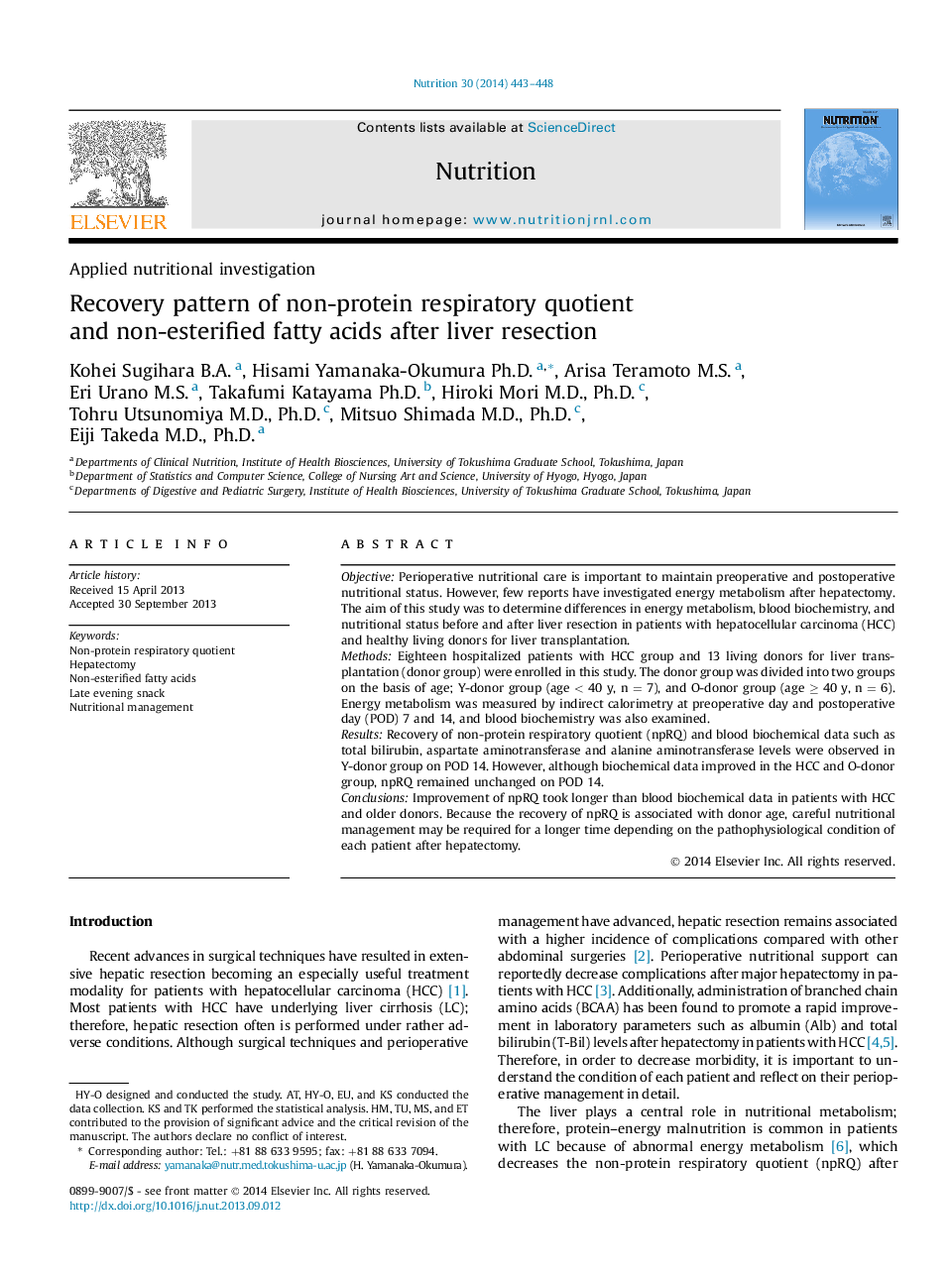| Article ID | Journal | Published Year | Pages | File Type |
|---|---|---|---|---|
| 3276371 | Nutrition | 2014 | 6 Pages |
ObjectivePerioperative nutritional care is important to maintain preoperative and postoperative nutritional status. However, few reports have investigated energy metabolism after hepatectomy. The aim of this study was to determine differences in energy metabolism, blood biochemistry, and nutritional status before and after liver resection in patients with hepatocellular carcinoma (HCC) and healthy living donors for liver transplantation.MethodsEighteen hospitalized patients with HCC group and 13 living donors for liver transplantation (donor group) were enrolled in this study. The donor group was divided into two groups on the basis of age; Y-donor group (age < 40 y, n = 7), and O-donor group (age ≥ 40 y, n = 6). Energy metabolism was measured by indirect calorimetry at preoperative day and postoperative day (POD) 7 and 14, and blood biochemistry was also examined.ResultsRecovery of non-protein respiratory quotient (npRQ) and blood biochemical data such as total bilirubin, aspartate aminotransferase and alanine aminotransferase levels were observed in Y-donor group on POD 14. However, although biochemical data improved in the HCC and O-donor group, npRQ remained unchanged on POD 14.ConclusionsImprovement of npRQ took longer than blood biochemical data in patients with HCC and older donors. Because the recovery of npRQ is associated with donor age, careful nutritional management may be required for a longer time depending on the pathophysiological condition of each patient after hepatectomy.
